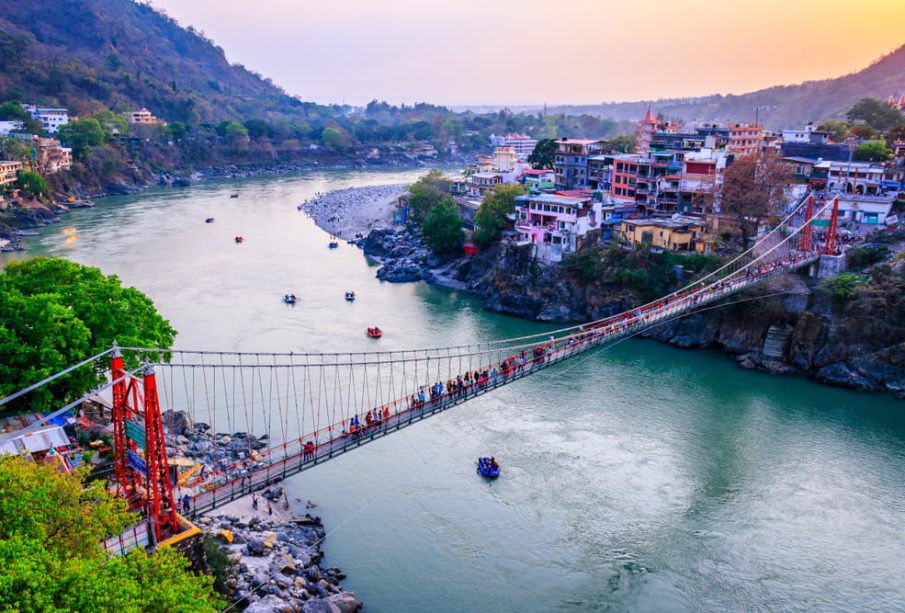Rishikesh: The Spiritual and Adventurous Hub of India

Introduction
Rishikesh, famously known as the ‘Yoga Capital of the World’, holds immense significance as a spiritual and adventure tourism hub in India. Nestled in the foothills of the Himalayas along the banks of the sacred Ganga River, it attracts thousands of visitors from around the globe every year. The town serves as a gateway for pilgrims and thrill-seekers alike, making it a diverse and dynamic destination.
Spiritual Significance
Rishikesh is greatly revered in Hindu culture, with numerous temples and ashrams dotting the landscape. The iconic Triveni Ghat is a popular spot for pilgrims to perform rituals and partake in the daily Ganga Aarti ceremony, which draws large crowds. Furthermore, the town is associated with the legendary Maharishi Mahesh Yogi, who popularized Transcendental Meditation in the 1960s, further enhancing its reputation as a place of spiritual wisdom.
Yoga and Wellness
Renowned for its yoga and wellness retreats, Rishikesh offers a plethora of programs ranging from beginner courses to advanced teachings. Centers like the Sivananda Ashram and Parmarth Niketan provide immersive experiences, allowing practitioners to connect deeply with yoga, meditation, and holistic healing. These retreats not only focus on physical practice but also emphasize spiritual growth and mindfulness, appealing to both seasoned yogis and newcomers.
Adventure Sports
In addition to its spiritual allure, Rishikesh is a hotspot for adventure enthusiasts. The Ganga River presents thrilling white-water rafting opportunities, attracting adventure seekers from around the world. Trekking, hiking, and camping in the nearby Rajaji National Park are also popular activities, offering breathtaking views of nature and wildlife. The annual Rishikesh River Festival celebrates this adventurous spirit, featuring competitions and activities that promote ecotourism.
Recent Developments
In recent years, Rishikesh has seen significant development in tourism infrastructure, with new hotels and facilities catering to the influx of visitors. The government has initiated measures to promote sustainable tourism, ensuring that the natural beauty of the region remains intact while accommodating growing numbers of tourists. Local businesses have adapted to this trend, providing eco-friendly services and products that benefit both visitors and the local community.
Conclusion
Rishikesh stands at the crossroads of spirituality and adventure, making it a unique destination that caters to a wide range of interests. Its blend of ancient traditions and modern tourism continues to draw attention, fostering a global community that cherishes both exploration and introspection. As Rishikesh evolves, its promise as a significant cultural and adventure landmark is expected to flourish, making it an essential stop for anyone exploring India.








